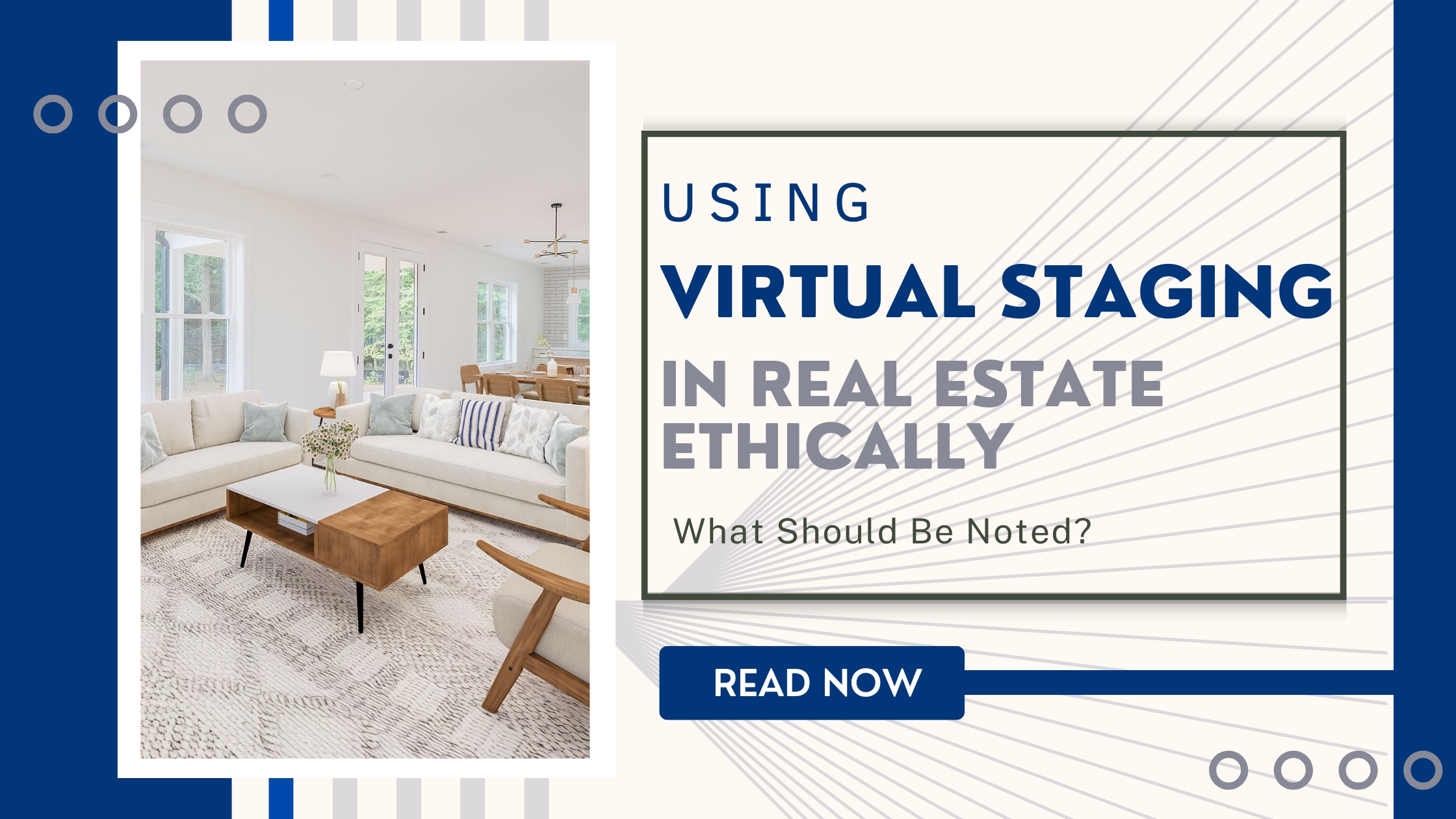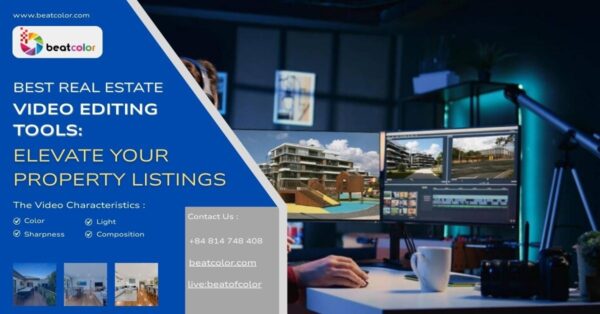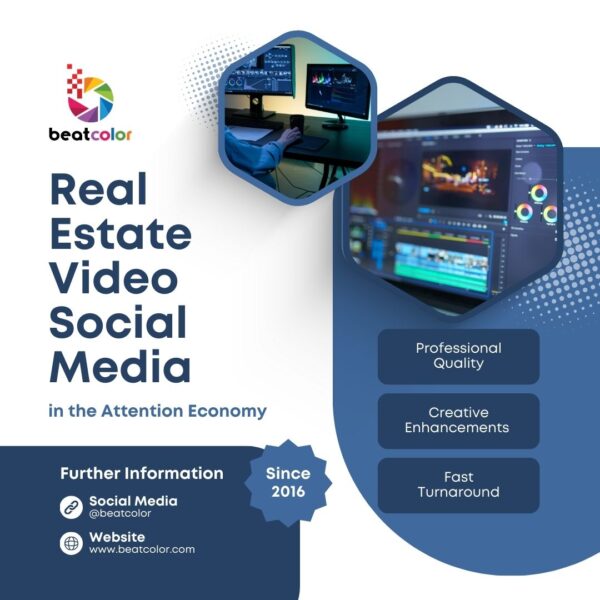Using Virtual Staging in Real Estate Ethically – What Should Be Noted?
In the ever-evolving real estate market, Virtual Staging in Real Estate has become a pivotal tool for enhancing property listings. However, while virtual staging offers numerous benefits, it is essential to use this technology ethically to maintain trust and transparency with potential buyers. In this article, we will delve into the essential guidelines and optimal practices for the ethical use of virtual staging in the real estate industry.
What is Virtual Staging?
Virtual staging in real estate entails digitally augmenting images of vacant or minimally furnished properties to increase their attractiveness. This technique allows real estate agents to showcase the potential of a property without the need for physical staging, which can be costly and time-consuming. Virtual staging can transform a dull, empty space into a vibrant and inviting home, helping buyers visualize how they could use the space.
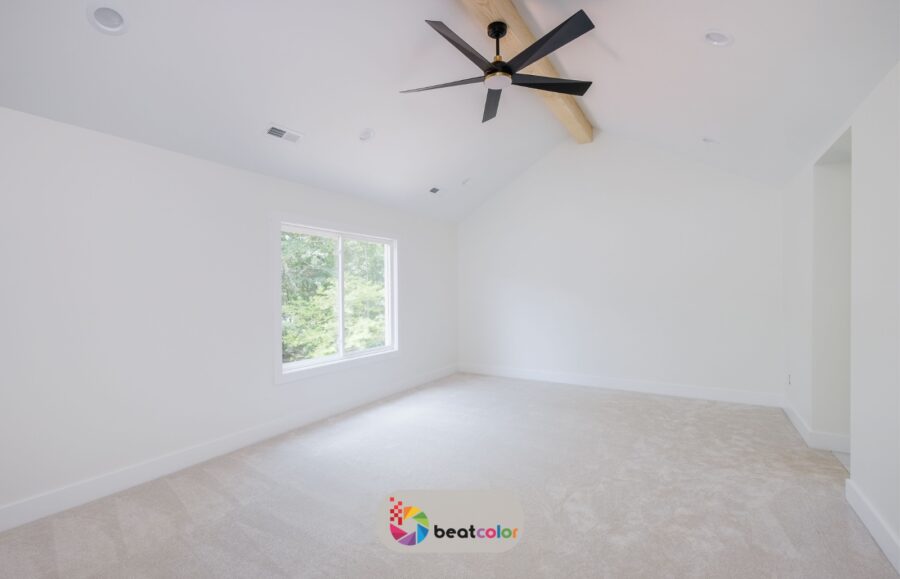
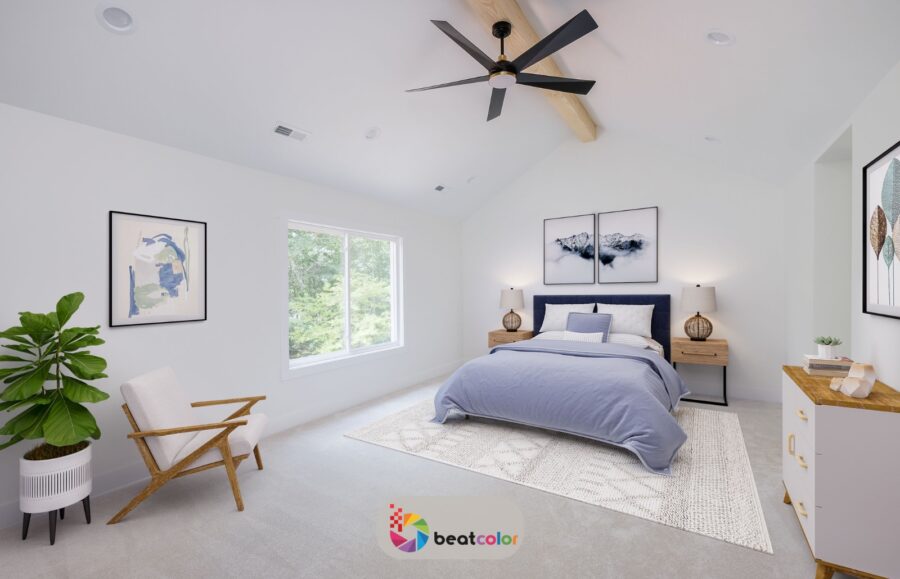
Virtual staging utilizes advanced Virtual Staging Software and Virtual Staging AI to add digital furniture, decor, and even lighting effects to photos. This technology enables real estate agents to present properties in the best possible light, attracting more interest from potential buyers.
Why Ethical Considerations Matter
While Virtual Staging in Real Estate can significantly enhance property images, it is crucial to ensure that the enhancements do not mislead potential buyers. Ethical virtual staging practices help maintain transparency, build trust, and avoid potential legal issues.
Key Ethical Considerations in Virtual Staging
- Accuracy and Honesty
- Ensure that virtual staging accurately represents the property. Avoid altering structural elements or misrepresenting the space. For example, do not change the size of rooms or add windows or doors that do not exist.
- Use virtual staging to showcase potential furnishing ideas, but do not mislead buyers about the size or condition of the property. Honesty in representation helps maintain credibility and prevents potential disappointment or disputes.
- Disclosure
- Always disclose that you have virtually staged images. Maintaining transparency with potential buyers is vital for trust. Add a simple note in the image description or watermark the photo to achieve this.
- Include disclaimers in the Page Meta Description, Image Alt Text, and Page URL to inform viewers of digitally enhanced images. This ensures potential buyers understand that the furnishings and decor shown in the images are not physically present.
- Realistic Enhancements
- Use virtual staging to add furniture and decor, but keep the enhancements realistic and in line with what the space can actually accommodate. Overly luxurious or unrealistic staging can set false expectations and lead to buyer dissatisfaction.
- Avoid using Virtual Staging AI to create unrealistic or overly glamorous representations that the property cannot match in reality. The goal is to enhance the property while maintaining a truthful representation.
Virtual Staging in Real Estate Examples
Here are some examples of ethical Virtual Staging in Real Estate:
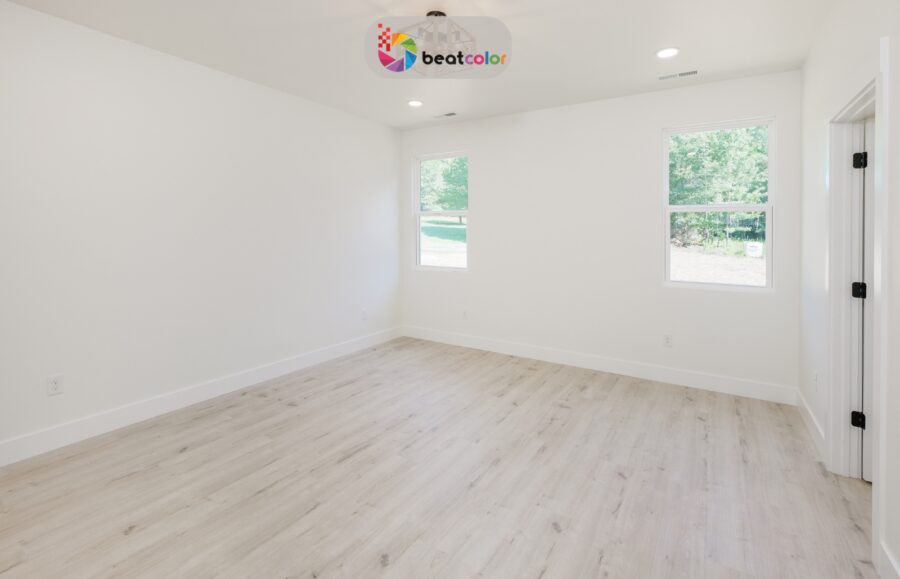

- A vacant living room digitally furnished with a couch, coffee table, and TV stand to show potential buyers how the space can be utilized. This helps buyers visualize the room’s functionality without misleading them about the room’s size or structure.
- An empty bedroom staged with a bed, nightstands, and lamps to demonstrate its size and layout possibilities. This type of staging can help buyers imagine the space as a comfortable and inviting place to rest.
Virtual staging should be used to highlight the property’s potential, not to mask its flaws. For instance, using virtual staging to hide structural damage or to make rooms appear larger than they are is unethical and can lead to serious repercussions.
Choosing the Right Virtual Staging Companies
Selecting reputable Virtual Staging Companies is crucial for ethical practices. Look for companies with a track record of accurate and realistic staging. Some of the best virtual staging companies offer both Virtual Staging Software and professional services to ensure high-quality results.
When choosing a virtual staging company, consider the following:
- Reputation and Reviews: Seek out companies with favorable reviews and testimonials from past clients, as this reflects their reliability and the quality of their work.
- Portfolio: Examine the company’s portfolio to view samples of their previous projects. Ensure that their style aligns with your needs and that they produce realistic and high-quality images.
- Pricing: Compare pricing between different companies. While cheaper options may be tempting, investing in a reputable company often yields better results and ensures ethical practices.
- Customer Service: Good customer service is essential. Choose a company that is responsive and willing to accommodate your specific needs and requests.
Free and Paid Virtual Staging Options
There are both free and paid options for virtual staging. While Virtual Staging Free tools can be tempting, they often lack the quality and precision of paid services. Investing in professional virtual staging ensures that enhancements are both realistic and ethical.

Free virtual staging tools might offer basic functionality, but they usually have limitations in terms of customization and realism. These tools might be suitable for simple staging needs, but for more sophisticated and high-quality results, paid services are generally a better choice.
Best Virtual Staging for Real Estate
The best virtual staging combines quality, realism, and ethical practices. Therefore, companies that use advanced Virtual Staging AI and Virtual Staging Software can provide high-quality images that accurately represent the property while also adhering to ethical standards.
Some of the best virtual staging companies include:
- BoxBrownie: Known for their realistic and high-quality virtual staging, BoxBrownie offers a range of services, including virtual renovations and day-to-dusk photo editing.
- Stuccco: This company provides custom virtual staging services with a focus on realism and accuracy. They offer a range of different packages to meet various requirements.
- PadStyler: PadStyler offers both virtual staging and 3D rendering services. They are known for their attention to detail and high-quality images.
- BeatColor: Assures to create a photorealistic three-dimensional simulation of the property in only around 24 hours. Special requests with adjusted delivery time shall be informed in advance. To even save your precious time, you can choose furniture models right from our diverse library. It allows us to accentuate the currently empty room with eye-grabbing accessories and completely renovate unsightly spaces with on-trend items. Skillfully handling interior to exterior staging and from residential to commercial spaces, BeatColor shall be the only all-inclusive service you need.
How to Implement Ethical Virtual Staging
To ensure ethical virtual staging practices, follow these steps:
- Choose the Right Software or Service: Select a reputable virtual staging company or software that offers realistic and high-quality results.
- Accurate Representation: Ensure that the virtual staging accurately represents the property’s size, layout, and features. Avoid altering structural elements or misrepresenting the space.
- Disclosure: Clearly disclose that the images have been virtually staged. This can be done through watermarks, image descriptions, and disclaimers in the meta description and URL.
- Consistency: Use virtual staging consistently across all marketing materials. This ensures that potential buyers have a clear and accurate understanding of the property.
- Feedback and Adjustments: Be open to feedback from clients and potential buyers. If any issues or concerns are raised about the virtual staging, address them promptly and make necessary adjustments.
Conclusion
Virtual Staging in Real Estate is a powerful tool that, when used ethically, can greatly enhance property listings. Therefore, by following the key considerations outlined above—accuracy, honesty, disclosure, and realistic enhancements—real estate professionals can leverage virtual staging to attract potential buyers without compromising on ethics. Additionally, remember to choose reputable Virtual Staging Companies and consider both free and paid options to find the best fit for your needs.
Furthermore, by maintaining transparency and trust, you can use virtual staging to its fullest potential while upholding the integrity of your real estate practice. Moreover, ethical virtual staging not only enhances your property listings but also builds a strong reputation and trust with potential buyers, leading to successful and satisfactory transactions.
Related posts:
Top Recommended Virtual Staging AI Tools 2024
Unlock Real Estate Marketing Success: Harness Virtual Staging’s Power!
Transform Your Real Estate Strategy: Top 5 Virtual Staging AI Tools in 2024


